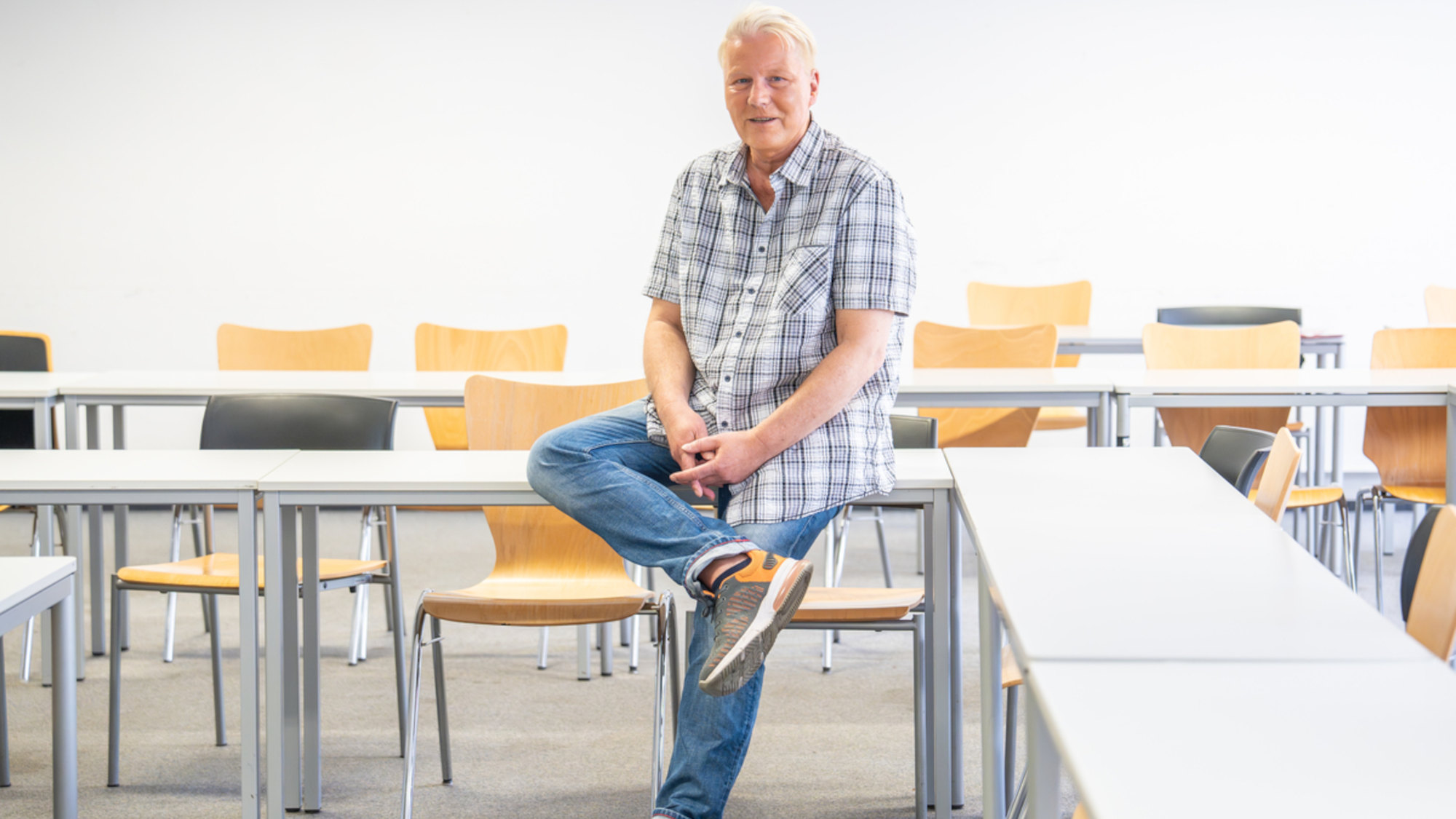
© Annemarie Popp / Universität Bremen
“We are constantly working to improve the quality of teacher training”
Christian Palentien coordinates the training of future teachers in his role as director of the Centre for Teacher Education and Educational Research.
Teaching at a school is a dream job for many. One thing is certain: In order to become a teacher, you need an excellent education yourself. At the University of Bremen, the Centre for Teacher Education and Educational Research (ZfLB) is the central academic institution that coordinates teacher training and facilitates quality management. The requirements for teacher education are constantly shifting. Professor Christian Palentien, ZfLB director, speaks about the challenges posed by the current shortage of teachers.
What are the objectives of the ZfLB?
The ZfLB coordinates all teacher training at the University of Bremen. In cooperation with the Central Student Advisory Service and the Academic Advisory Offices of each faculty, it offers a wide range of information and assistance for students and those interested in teaching. We are constantly working to improve the quality of teacher education and, in line with our quality management, strive to optimize the conditions for students in teaching degree programs.
Teaching degrees involve studying several subjects. How are you able to oversee to the quality of the training?
The quality cycle for teacher education was created for this purpose. It is coordinated by the ZfLB, and a corresponding committee of the Council of the ZfLB initiates adjustments and also discusses critical objectives, such as ensuring that mandatory courses do not overlap in time and that subject-specific courses and teaching-methodology courses are properly coordinated. Since teacher training encompasses multiple subjects, solving such problems is not always easy, because it requires combining input and strategies from several faculties. Nine out of twelve faculties are involved in the training of future teachers. However, this is what makes the work exciting, because teacher education encompasses so many parts of the university and is thus also an essential component in research and teaching.
Teacher training is currently a hot topic nationwide, and there is a shortage of teachers in Bremen as well. How can the university respond to the need for more teachers?
The ZfLB is a combination of a service center and a think tank. Various committees are currently intensively discussing alternative models for degree programs with the goal of increasing the number of teacher education students at the University of Bremen. We are investigating ways to increase access to teacher education programs as well as potentially introducing models for degree programs that are completely new to Bremen. These changes would include a dual studies teacher education program and making the entrance requirements for the master’s program (M.Ed.) more conducive to applicants from other universities.
What aspects do you give the highest priority?
The guiding principle for our work is always to focus on the teaching methods and academic quality of the training. We must take into account the requirements for teacher education set by the state’s Standing Conference of the Ministers of Education and Cultural Affairs as well as the political and social requirements the training must meet. Sometimes our work requires a delicate balancing act. We are aware that the current focus of education policy revolves around the need for teachers in Bremen and the measures the university can take to address this. However, before a proposal can be properly implemented, intensive substantive processes within the university need to take place, and these must then be coordinated with both overseeing authorities (Senator for the Environment, Climate and Science; Senator for Children and Education).
What distinguishes teacher education at the University of Bremen?
One aspect that makes studying at the University of Bremen appealing is that practical components are already part of the program in the bachelor’s phase, with internships at schools taking place early on. The comparatively high proportion of teaching methodology elements also makes studying at the University of Bremen attractive for teacher training students. We highly value personal development and reflecting on our role as future teachers, which gives students a good basis for coping even in challenging situations. We are also pleased that we offer a well-coordinated transition from a bachelor’s degree to the master’s phase. So far, all BA graduates who have wanted to continue their studies in Bremen have been accepted to a master’s degree program. The wide range of subjects offered at the university also makes it attractive, and as of this upcoming winter semester, this will be expanded to include the subject sports. In addition, inclusion is a top priority in Bremen schools, and the university has embraced this topic by preparing its students for teaching and learning in the inclusive school system. Dealing with heterogeneity is firmly anchored in all teacher training programs and can certainly be regarded as a unique selling point for a degree in teacher education at the University of Bremen. Another advantage is that distances within the city-state of Bremen are short. Even though the current situation provides challenges, we can rely on a long-standing and good cooperation with the State Institute for Schools, which is positively reflected in how the first and second phases of training complement each other. This ensures prospective teachers have a seamless transition from completing their academic degrees to beginning their postgraduate internships.
Further Information
Website of the Centre for Teacher Education and Educational Research (in German only) Teacher Education at the University of Bremen